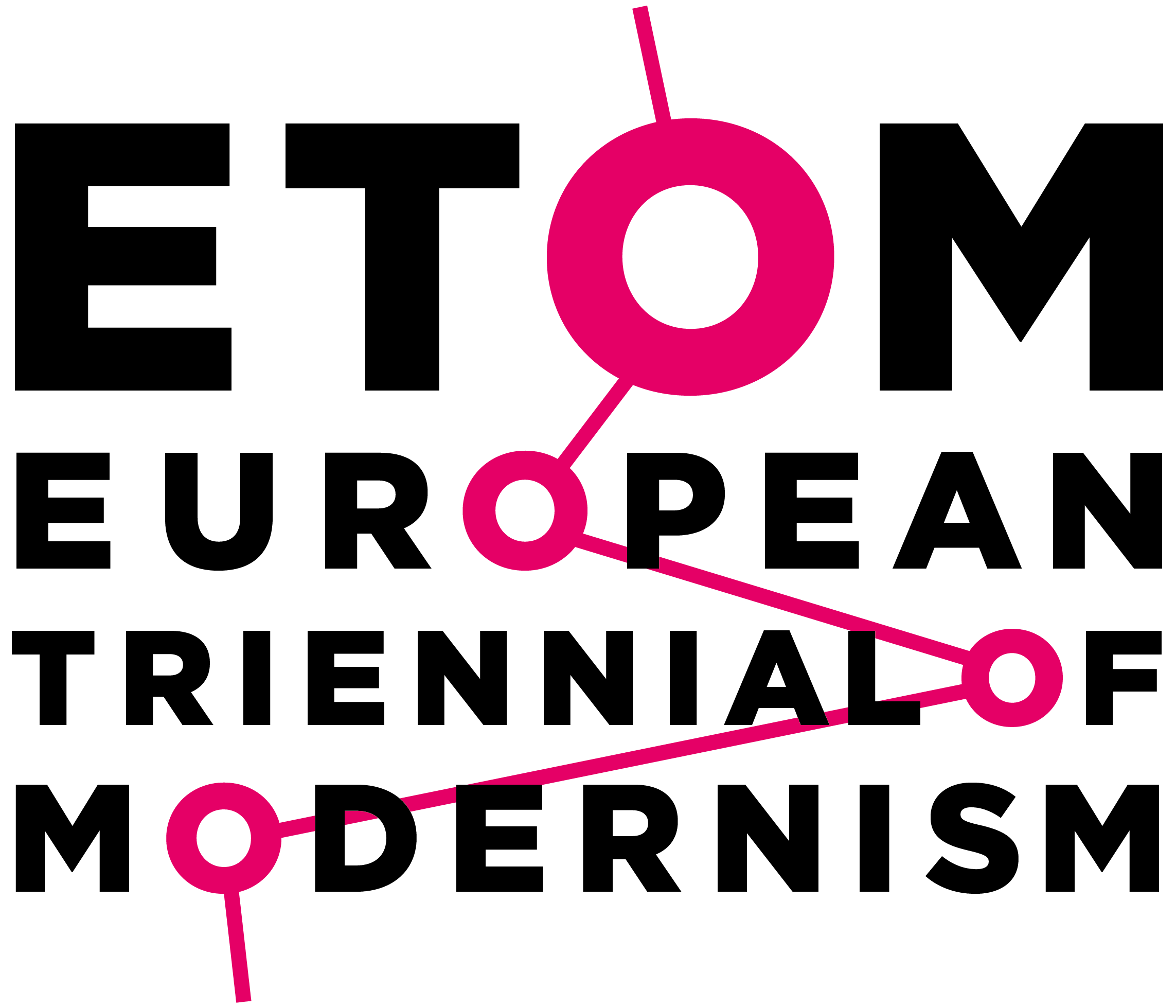
About ETOM – European Triennial of Modernism
The ETOM initiative develops a co-creation platform on trans-European Modernism and organizes a decentralized triennial festival. ETOM builds on the «Triennale der Moderne» (TDM) festival in Berlin, Dessau, and Weimar, which returned for its fourth edition in 2022.
The initiative was created «bottom-up» during the pandemic in 2021, and has already brought together 38 partners from 14 countries and of a heterogeneous and cross-sectoral background, including 9 official NEB partners. It was launched by the Berlin TDM curators together with partners from across Central Europe, originating from an emerging network based on partners from the 2019 trans-national «re:bauhaus» festival, as well as from DOCOMOMO, ICOMOS and the NEB community.
Following the motto «Diverse Modernism | Modern Diversity», the ETOM initiative addresses both the heritage of and the future perspectives on Modernism in terms of built heritage and the history of modern ideas, with a particular focus on the sustainability and resilience of such modern values as societal emancipation, social equality, and democratic participation.
ETOM incorporates a circular ecosystem, based on a recurring three-year period, which includes continuous cross-sectoral capacity building and transdisciplinary co-creation culminating with the triennial ETOM festival, which serves not only for public presentation, but also as a target and starting point for the process. In a triangle collaboration between ETOM and the international, widely connected organizations DOCOMOMO and ICOMOS, a strategic initiative “Triangle for Modernism” was launched. From the very beginning, the ETOM initiative drew special attention to Central and Eastern Europe, its significance and major role in ensuring European unity and cultural resilience, as well as in overcoming a persisting, but outdated East–West divide. The war of aggression against Ukraine clearly shows the importance of Central Europe for European coherence, which should rely, among others, on cultural collaboration and shared modern values.
European partners
(by nation in alphabetical order)
Czech Republic
– National Gallery in Prague (NGP), Prague
– Forum for Architecture and Media (4 AM), Brno
– Prague 7 District Municipality (UMC7)
Hungary
– Hungarian Museum of Architecture
(MEM-MDK), Budapest
– The Hungarian Contemporary
Architecture Centre (KÉK), Budapest
– Budapest 13th District – city municipality (B13D)
Estonia
– Estonian Academy of Arts – Institute of
Art History and Visual Culture (EAA-EKA), Tallinn
– Estonian Museum of Architecture (EMA), Tallinn
– Tallinna linn (COT), Tallinn City
France
– ICOMOS International Secretariat, Paris
Latvia
– Museum of Decorative
Arts and Design (LNMM), Riga
– Latvian Design Centre (FOLD), Riga
– Latvian Ministry of Culture (LMOC)
Lithuania
– Kaunas 2022 (K2022),
Kaunas European Capital of Culture
– Nematerialaus Turto Fondas (NTF)
– Kaunas City Municipal Administration (KCMA)
– Architects Association of Lithuania, Vilnius (LAS)
Netherlands
– DOCOMOMO international
North Macedonia
– Contineo 2020 (CONTINEO), Skopje
– University American College Skopje – Privatna Ustanova – Department of Architecture (UACS)
Poland
– National Institute of Architecture and
Urban Planning (NIAiU), Warsaw
– Institute of Architecture Foundation (FIA), Cracow
– International Cultural Centre (ICC), Cracow
– Gmina Miejska Kraków – Urząd Miasta Krakowa (CCK), Cracow
Romania
– Asociația Română pentru Cultură,
Educație și Normalitate (ARCEN), Bucharest
– SG Studio – zeppelin magazine (SGS-ZEP), Bucharest
– Second District Hall of Bucharest (SDHB)
Serbia
– Belgrade International Architecture Week (ABA-BINA), Belgrade
– ZAVOD – Zavod za zastitu spomenika kulture grada Beograda (Cultural Heritage Preservation Institute of Belgrade)
– Gradska opstina Novi Beograd, City Municipality (MNB), Belgrade
Slovakia
– Slovak Design Center (SDC), Bratislava
Ukraine
– Lviv Centre for Urban History, Lviv (LCUH), Lviv
– Urban Forms Center (UFC), Kharkiv
![]()


